New Scientist covers the latest developments in science and technology that will impact your world. New Scientist employs and commissions the best writers in their fields from all over the world. Our editorial team provide cutting-edge news, award-winning features and reports, written in concise and clear language that puts discoveries and advances in the context of everyday life today and in the future.
Elsewhere on New Scientist
An issue of trust • Will we ever feel comfortable with AIs taking on important tasks?
New Scientist Australian Edition
Dead star exploded twice
Is AI about to change maths forever? • The latest generation of artificial intelligence models is taking on the job of checking mathematical proofs, but some wonder how useful they can really be, finds Alex Wilkins
Nighttime light exposure linked to heart disease
Child’s skull could be an ancient-human hybrid
Interstellar visitor is flying through our solar system
Home solar’s threat to power grids • Hackers could target connection between solar panels and the power systems they plug into
Protocells self-assemble on micrometeorites
The surprising benefits of quantum randomness
Quantum-enhanced supercomputers • Using a supercomputer to check a quantum computer’s calculations opens the door to error-free applications in chemistry, finds Karmela Padavic-Callaghan
Ancient Egyptian’s genome hints at links with Mesopotamia
Prehistoric Spanish people moved 2-tonne stone by boat
Habitats on Mars could be built from algae
Microbes linked to colorectal cancer • “Harmless” archaea found in our gut may not be as benign as we thought
The tree that turns carbon dioxide into stone
One drug could fight all flu strains • A treatment containing an antiviral drug could offer more protection than current flu vaccines
A step towards an eco-friendly way of making cheese
Typos and slang spur AI to discourage seeking medical care
Antarctic sea ice loss is more damaging than we thought
Gut linked to PCOS fertility issues • An altered gut microbiome may explain why those with polycystic ovary syndrome experience a higher risk of miscarriage, finds Grace Wade
We may know how PCOS is passed on
Orcas are bringing humans gifts – hinting they have theory of mind
DNA reveals secret of Roman Empire’s favourite sauce
A test too far • A plan to genetically screen newborns for a huge range of rare diseases is medically and ethically problematic, says Suzanne O’Sullivan
Field notes from space-time • Vastly, hugely, mind-bogglingly big The awe-inspiring distances of the cosmos are hard to visualise, so how can we be certain we’re measuring them correctly? Chanda Prescod-Weinstein explains
Dying to live
Think of the children • To stop Earth’s population plummeting, we must find ways to persuade people to have more babies, warns a provocative book. Michael Le Page explores
Slay the new slang • Social media is turbocharging the evolution of language. Millennial Victoria Turk finds a guide to help us keep up
New Scientist recommends
The TV column • High hopes Foundation’s third season is full of new characters and dramatic potential. But instead of mining those rich seams, too many plotlines feel undercooked. The show’s decline is hard to watch, says Bethan Ackerley
Your letters
Ageing, fast and slow • We have long thought there is a slow, steady decline into old age, but it turns out we actually experience three rapid periods of ageing, finds Graham Lawton
The ageing tipping points • Though there are some outliers, many of the systems and organs in our bodies seem to tick along at a steady rate until they suddenly...
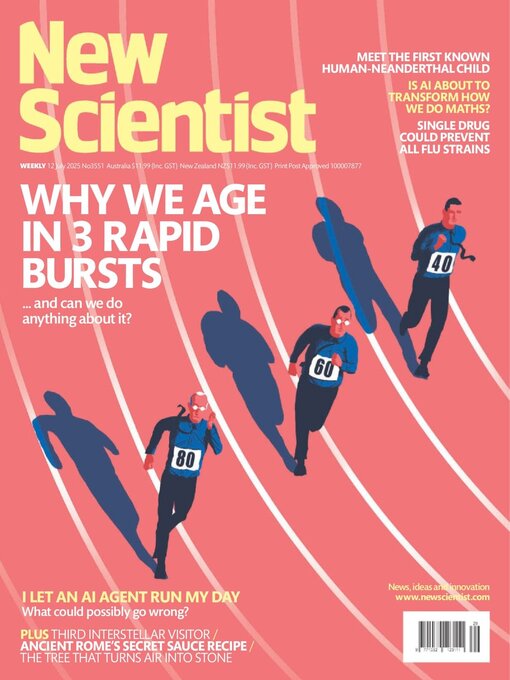
 Jul 12 2025
Jul 12 2025
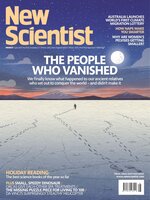 Jul 05 2025
Jul 05 2025
 Jun 28 2025
Jun 28 2025
 Jun 21 2025
Jun 21 2025
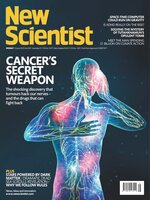 Jun 14 2025
Jun 14 2025
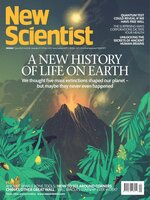 Jun 07 2025
Jun 07 2025
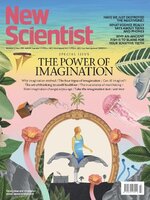 May 31 2025
May 31 2025
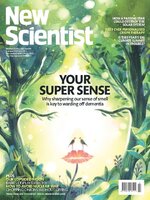 May 24 2025
May 24 2025
 May 17 2025
May 17 2025
 May 10 2025
May 10 2025
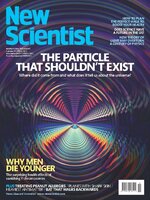 May 03 2025
May 03 2025
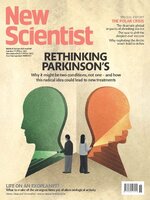 Apr 26 2025
Apr 26 2025
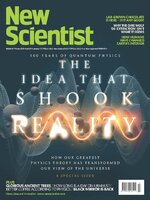 Apr 19 2025
Apr 19 2025
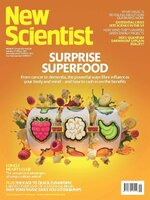 Apr 12 2025
Apr 12 2025
 Apr 05 2025
Apr 05 2025
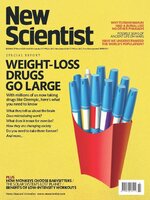 Mar 29 2025
Mar 29 2025
 Mar 22 2025
Mar 22 2025
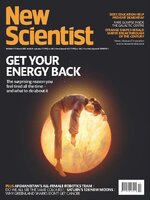 Mar 15 2025
Mar 15 2025
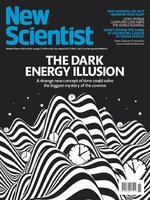 Mar 08 2025
Mar 08 2025
 Mar 01 2025
Mar 01 2025
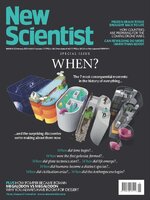 Feb 22 2025
Feb 22 2025
 Feb 15 2025
Feb 15 2025
 Feb 08 2025
Feb 08 2025
 Feb 01 2025
Feb 01 2025